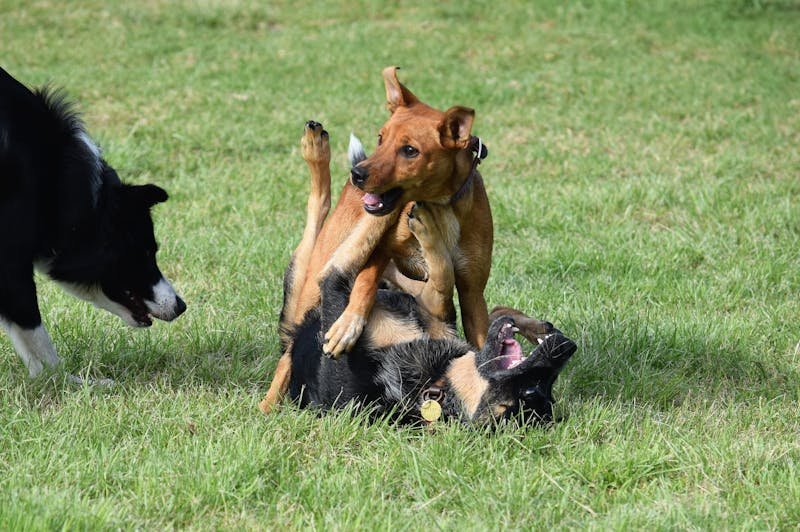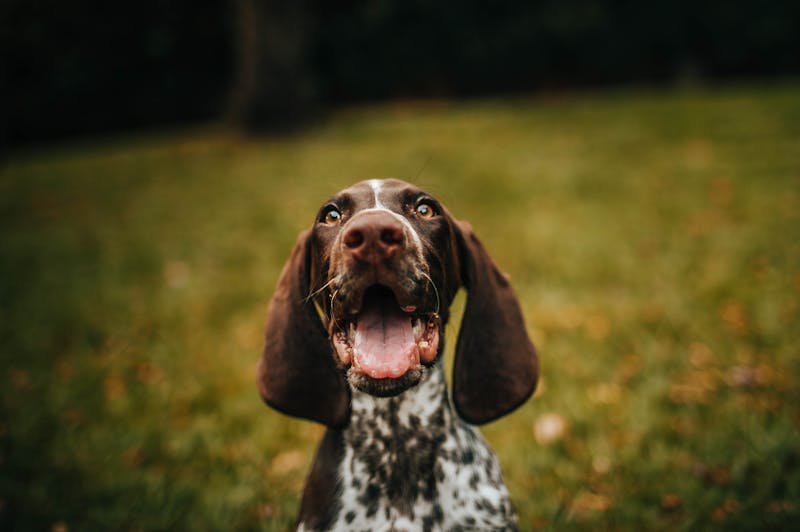If you have a new puppy in Maryville, Tennessee, you have a precious and limited window of opportunity that will shape your dog's behavior for life. The critical socialization period between 3 and 16 weeks determines whether your puppy becomes a confident, well-adjusted dog or develops fears and behavioral issues that can last a lifetime.
Time-Sensitive Alert: After 16 weeks, the socialization window begins to close. Every day counts during this critical period!
Understanding the Critical Socialization Window
Puppy development follows a predictable timeline, and understanding these phases is crucial for proper socialization:

Safe puppy play sessions are crucial for developing social skills
3-5 Weeks: Early Neurological Development
- Puppies begin to see, hear, and walk
- First social interactions with littermates
- Critical for staying with mother and siblings
- Not yet ready for new homes
5-8 Weeks: Primary Socialization
- Learning bite inhibition from littermates
- Beginning to explore environment
- Can start gentle handling by humans
- Introduction to household sounds
8-12 Weeks: Golden Socialization Period
- Most critical phase for socialization
- Puppies are naturally curious and less fearful
- Optimal time for new experiences
- Form lasting impressions about the world
12-16 Weeks: Continued Socialization
- Fear periods may begin
- Still receptive to new experiences
- Requires more positive reinforcement
- Last chance for easy socialization
Why Proper Socialization Matters
The consequences of missed socialization can last a lifetime. Well-socialized puppies grow into dogs that are:
Benefits of Proper Socialization
- Confident: Comfortable in new situations without fear or aggression
- Friendly: Enjoy meeting new people and dogs appropriately
- Adaptable: Handle changes in routine or environment calmly
- Trainable: Focus on learning instead of managing fear or anxiety
- Safe: Less likely to bite out of fear or develop aggression
Risks of Poor Socialization
- Fear-based aggression: The #1 cause of dog bites
- Anxiety disorders: Separation anxiety, noise phobias
- Reactivity: Barking, lunging at people/dogs/vehicles
- Limited lifestyle: Can't enjoy public places or visitors
- Expensive behavior modification: Fixing problems costs more than prevention
Complete Puppy Socialization Checklist
Use this comprehensive checklist to ensure your puppy experiences everything they need. Aim for 3-5 positive experiences with each item:
People (All Ages, Sizes, and Appearances)
Animals
Environments
Sounds
Surfaces
Handling
Best Puppy Socialization Spots in Maryville
Take advantage of these local areas for safe, controlled socialization:
Before Full Vaccination (8-12 weeks)
- Tractor Supply Co. (Alcoa): Puppy-friendly store with carts for safety
- Home Depot (Maryville): Great for different sounds and surfaces
- Downtown Maryville: Carry puppy to see sights and sounds
- Friends' homes: Controlled environment with known healthy dogs
- Your car: Park outside Walmart for people-watching
After Vaccination (12+ weeks)
- Greenbelt Park: Popular dog walking area with friendly dogs
- PetSmart Alcoa: Puppy training classes and socialization
- Foothills Mall area: Outdoor walking with various stimuli
- Heritage High School (evenings): Safe area for leash training
- Local farmers markets: Great for crowds and new experiences
Common Socialization Mistakes to Avoid
1. Waiting Too Long
"I'll socialize after all vaccines" is the #1 mistake. Use safe methods before full vaccination - the behavioral risk outweighs disease risk when done properly.
2. Overwhelming Your Puppy
Quality over quantity! Three positive experiences are better than ten stressful ones. Watch for signs of stress:
- Cowering or hiding
- Excessive panting or drooling
- Trying to escape
- Shutting down (won't take treats)
3. Forcing Interactions
Never force a scared puppy to "face their fears." This creates trauma, not confidence. Let puppies approach at their own pace.
4. Dog Park Too Early
Dog parks are not appropriate for puppies under 6 months. Too many unknown dogs, diseases, and potential for bad experiences.
5. Only Socializing with Dogs
Dogs are just one part! Environmental socialization is equally important for a well-rounded adult dog.

Structured puppy classes provide controlled socialization opportunities
Safety Guidelines During Socialization
Before Full Vaccination
- Avoid: Dog parks, pet stores floors, areas with unknown dogs
- Carry puppy: In public areas where dogs have been
- Use stroller/wagon: For longer outings
- Clean surfaces: Sanitize shopping carts before use
- Known dogs only: Play with healthy, vaccinated dogs
Creating Positive Experiences
- Bring treats: High-value rewards for brave behavior
- Keep it short: 5-10 minute sessions for young puppies
- End on success: Always finish when puppy is happy
- Control distance: Move away if puppy shows fear
- Pair with play: Make new experiences fun
When to Seek Professional Help
Contact a professional trainer immediately if your puppy shows:
- Extreme fear of normal stimuli
- Aggression toward people or dogs
- Resource guarding (food, toys, space)
- Excessive shyness or hiding
- Inability to recover from mild stress
Remember: It's much easier to prevent problems than fix them later!
Need Professional Puppy Socialization Help?
Don't miss the critical window! Our NePoPo® certified trainers at Paws & Applause offer specialized puppy programs designed to create confident, well-adjusted dogs. We know exactly how to maximize this precious socialization period.
Free Downloadable Checklist
Print this socialization checklist and track your puppy's progress!